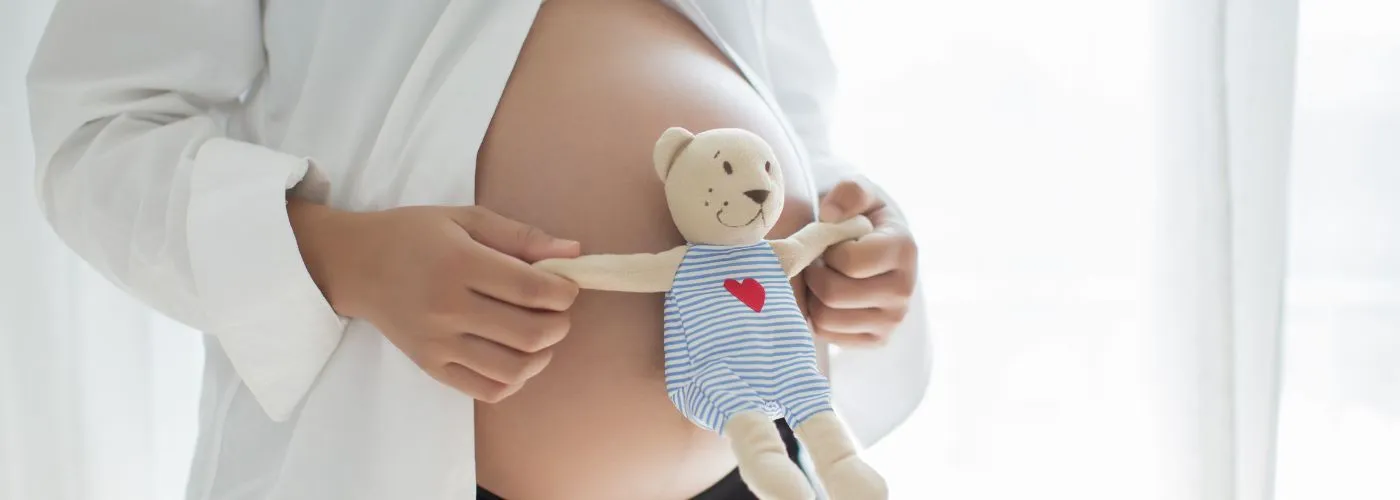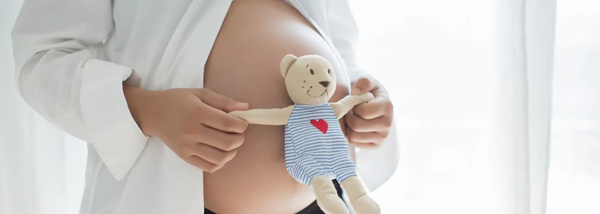Topics
Urinary incontinence, or the involuntary leakage of urine, is a common concern for many women during and after pregnancy. While it can be distressing, it is important to know that this condition is often temporary and manageable with the right care and support. Understanding why urinary incontinence happens, how to manage it, and when to seek help can empower women to maintain a better quality of life throughout and beyond their pregnancy.
At Pantai Hospitals, our women’s health specialists are experienced in diagnosing and treating urinary incontinence with compassion and expertise. Whether you are currently expecting or recovering post-delivery, we offer comprehensive care for all stages of your maternal journey.
What Is Urinary Incontinence and How Is It Linked to Pregnancy?
Urinary incontinence is the inability to control the release of urine. It can occur in various forms, such as stress incontinence, which involves leakage during physical activity or pressure (e.g., coughing, sneezing), and urge incontinence, which includes a sudden, strong urge to urinate.
Pregnancy and Pelvic Floor Pressure
During pregnancy, the uterus expands and places increasing pressure on the bladder and pelvic floor muscles. This pressure weakens the muscles that help control urination, leading to leakage.
Hormonal Changes
Pregnancy hormones affect the strength and elasticity of tissues throughout the body, including those supporting the bladder and urethra. These changes contribute to reduced urinary control.
Increased Blood Volume
The body’s blood volume increases during pregnancy, leading to higher kidney activity and more urine production. This frequent need to urinate, combined with muscle relaxation, increases the chances of leakage.
Delivery-Related Trauma
Vaginal childbirth can stretch or damage pelvic muscles and nerves, especially during prolonged labour or instrumental delivery. This increases the risk of postpartum urinary incontinence. Most pregnant women experience at least some urinary urgency or leakage.
What Causes Urinary Incontinence During and After Pregnancy?
Urinary incontinence in pregnancy is often caused by a mix of physical, hormonal, and anatomical changes that impact the urinary tract.
Pelvic Floor Muscle Weakness
The growing baby adds weight and strain on the pelvic floor muscles. These muscles are essential for bladder control, and weakening them leads to leakage during movements like coughing or laughing.
Pressure from the Uterus
As the uterus expands, it exerts more pressure on the bladder, which can reduce its capacity and increase the likelihood of leakage.
Hormonal Fluctuations
Hormones like relaxin, relax the ligaments and muscles to prepare the body for childbirth. However, this also affects the pelvic region, reducing its strength and responsiveness.
Constipation and Straining
Constipation is common during pregnancy. Straining to pass stool puts extra pressure on pelvic muscles, which can aggravate urinary incontinence.
Episiotomy or Instrumental Delivery
Procedures such as forceps or vacuum-assisted deliveries may increase the risk of nerve or muscle damage in the pelvic area, resulting in incontinence post-delivery.
Repeated Pregnancies
Women with multiple pregnancies may experience greater pelvic muscle weakness, increasing the risk of urinary leakage.
What Are the Health Risks and Complications of Untreated Urinary Incontinence?
While urinary incontinence is not usually dangerous, an untreated condition may lead to complications that affect both physical and mental well-being.
Skin Irritation and Infections
Constant moisture in the genital area can lead to irritation, rashes, or even urinary tract infections (UTIs).
Pelvic Organ Prolapse
Chronic straining and weak muscles may lead to pelvic organs dropping from their normal position, requiring surgical correction.
Emotional Impact
Women frequently experience feelings of embarrassment, frustration, or anxiety about their symptoms, leading to social withdrawal or decreased intimacy.
Sleep Disruption
Frequent nighttime urination or accidents can disturb sleep and impact daily functioning, especially in new mothers.
Reduced Quality of Life
Persistent leakage may interfere with exercise, work, and daily routines.
How Can Pregnant Women Manage or Prevent Urinary Incontinence?
Managing urinary incontinence during and after pregnancy is possible with a combination of exercises and lifestyle changes.
Pelvic Floor Exercises (Kegels)
These exercises strengthen the pelvic floor muscles. Done regularly, they help improve bladder control and reduce leakage.
Bladder Training
Timed bathroom visits and gradually increasing the intervals between urination can retrain the bladder to hold urine longer.
Maintain a Healthy Weight
Maintaining a pregnancy weight gain within recommended limits helps reduce pressure on the bladder and pelvic muscles.
Stay Hydrated
Drink enough water to stay hydrated, but skip large amounts before bedtime or extended trips.
Prevent Constipation
Eat fibre-rich foods and stay active to maintain healthy bowel movements, reducing pressure on the bladder.
Use Absorbent Pads
While managing symptoms, high-quality pads can offer comfort and protection, especially during physical activity or travel.
Postpartum Therapy
If symptoms persist after delivery, postpartum pelvic physiotherapy or medication may be prescribed based on severity.
Frequently Asked Questions (FAQ)
1. Is urinary incontinence common during pregnancy?
Yes, it affects up to 50% of women during pregnancy. The risk increases with multiple pregnancies or vaginal births.
2. Will the leakage stop after delivery?
In many cases, symptoms improve within weeks or months postpartum. However, some women may experience long-term issues requiring treatment.
3. Can urinary incontinence affect my baby?
No, it does not directly harm the baby. However, managing it effectively is essential for the mother's comfort and well-being.
4. When should I see a doctor for urinary leakage?
Seek medical advice if leakage interferes with daily life, continues beyond six weeks postpartum, or is accompanied by pain or infections.
5. Can I prevent incontinence during my first pregnancy?
While you cannot always prevent it, strengthening pelvic muscles before and during pregnancy can significantly reduce the risk.
Book an Appointment at Pantai Hospitals
Urinary incontinence during and after pregnancy is more common than many people realise. Although it is often temporary, it can have a significant impact on quality of life if left unmanaged. From simple pelvic exercises to targeted medical support, many solutions are available to help women feel comfortable, confident, and in control again.
At Pantai Hospitals, we are committed to support women through every stage of life. Do not wait—book your appointment today and start your journey toward better health. Our team is here to support you every step of the way. You may also book an appointment via our website or download our My Health 360 application which can be obtained at Google Play Store.
Pantai Hospitals have been accredited by the Malaysian Society for Quality in Health (MSQH) for its commitment to patient safety and service quality.
References
Bladder weakness (incontinence) after birth | Pregnancy Birth and Baby. (2024, August 1). Pregnancy, Birth and Baby. Retrieved May 21, 2025, from https://www.pregnancybirthbaby.org.au/bladder-weakness-after-birth
Corton, M. (2020, May 19). Tips to prevent involuntary urine leakage (incontinence) during and after pregnancy | Women's Health | Your Pregnancy Matters. UT Southwestern Medical Center. Retrieved May 21, 2025, from https://utswmed.org/medblog/leakage-incontinence-during-after-pregnancy/
Mayo Clinic. (2023, February 9). Urinary incontinence - Symptoms and causes. Mayo Clinic. Retrieved May 21, 2025, from https://www.mayoclinic.org/diseases-conditions/urinary-incontinence/symptoms-causes/syc-20352808
Pregnancy Incontinence: Causes, Symptoms & Treatment. (2022, August 31). Cleveland Clinic. Retrieved May 21, 2025, from https://my.clevelandclinic.org/health/diseases/16094-pregnancy-and-bladder-control













